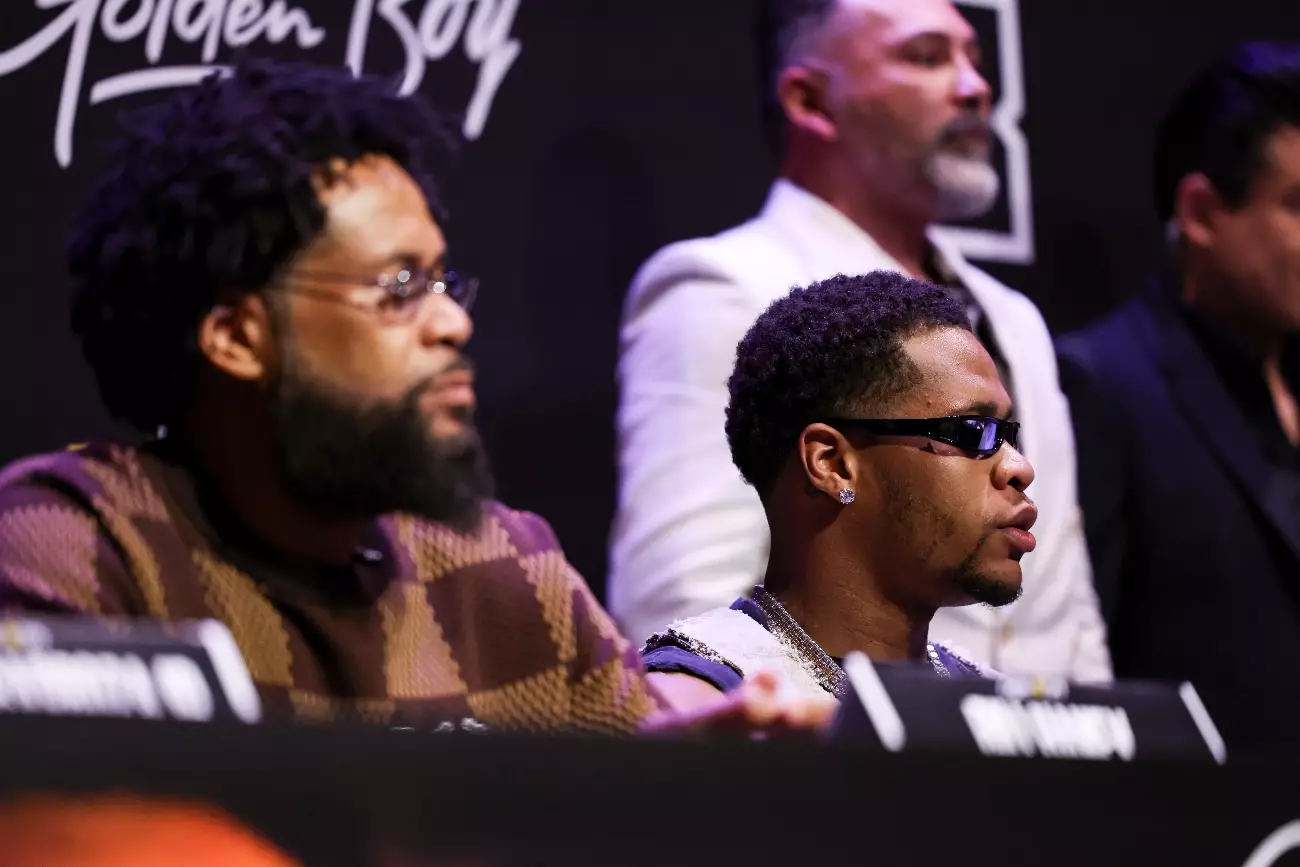In the world of boxing, where the stakes can be as high as the egos, miscommunication and unmet expectations can easily lead to fiery confrontations. The recent feud between promoter Eddie Hearn and former two-division world champion Devin Haney over a ticket controversy serves as a prime example of how quickly relationships can sour in the high-stakes environment of professional sports. Instead of a private matter, this spat unfolded in the public eye, revealing the vulnerability of even the most seasoned figures in boxing.
The crux of the debacle lies in Haney’s last-minute demand for ringside tickets to the Anthony Joshua vs. Daniel Dubois event in Riyadh. Hearn expressed his frustration at being approached by Haney just hours before the fight, revealing that he received a request for tickets at 6:00 am on the day of the event. Given that Hearn was heavily involved in organizing a complicated international boxing event, it’s surprising that Haney expected accommodation for what was, essentially, an eleventh-hour request. Hearn clarified that all available tickets had already been allocated, emphasizing the lack of prior communication on Haney’s part.
This situation raises questions about Haney’s understanding of his current standing within the boxing hierarchy. After a disappointing loss to Ryan Garcia earlier in the year—one that significantly impacted his reputation—Haney’s insistence on VIP treatment comes off as entitled. The boxer, once deemed a top-tier fighter, now finds himself re-evaluating his position in the sport. With each misstep, he risks further alienating himself from influential figures like Hearn, who is no longer obligated to prioritize his needs.
As tensions erupted, the incident quickly made its way to social media, with Haney taking to Twitter to air his grievances. This not only painted Hearn in an unfavorable light but also showcased Haney’s apparent inability to handle the situation professionally. Social media, while a powerful tool for athletes to communicate with fans, can also double as a weapon that invites public scrutiny. Hearn’s animosity towards Haney’s online complaints highlights a growing trend where athletes are unafraid to voice their frustrations publicly, despite the potential ramifications for their personal and professional relationships.
Could this approach signal a deeper shift in how boxers communicate their grievances? As the sport evolves, with social media platforms becoming integral to athlete branding, issues that were once settled behind closed doors are now broadcasted for all to see. This shift arguably strips away the traditional courtesies embedded within sports relationships, raising new questions about respect and decorum within the industry.
The fallout culminated in a heated exchange between Hearn and Haney during the event itself, a confrontation that someone managed to capture and upload to YouTube. The recording quickly turned into a spectacle for the online community, with viewers chuckling over the awkwardness of the situation. Hearn’s reaction, alongside Haney’s apparent defensiveness, underscores the emotional intensity that surrounds professional battles, both inside and outside of the ring.
In their heated conversation, Hearn articulated his feelings about Haney’s behavior, questioning the audacity of calling him out in public. “You’re like a little kid,” Hearn remarked, stressing that Haney needed to bear some responsibility in the situation. Rather than addressing concerns directly, Haney resorted to public commentary, which for Hearn, reflected immaturity and disrespect. Such an approach not only diminishes the value of their previous relationship but highlights the volatile nature of ego, especially when one’s career hangs in the balance.
The clash between Eddie Hearn and Devin Haney serves as a cautionary tale for athletes navigating the complexities of fame, networking, and mutual respect. In a sport characterized by cutthroat competition, understanding one’s current standing and communicating effectively with promoters could be the difference between climbing to the top or plummeting into obscurity. As fighters like Haney grapple with their reputations post-defeat, they must recognize the delicate balance between voicing grievances and maintaining vital professional relationships. Ultimately, this event is a reminder that in the high-octane world of boxing, communication and respect can never be undervalued.

